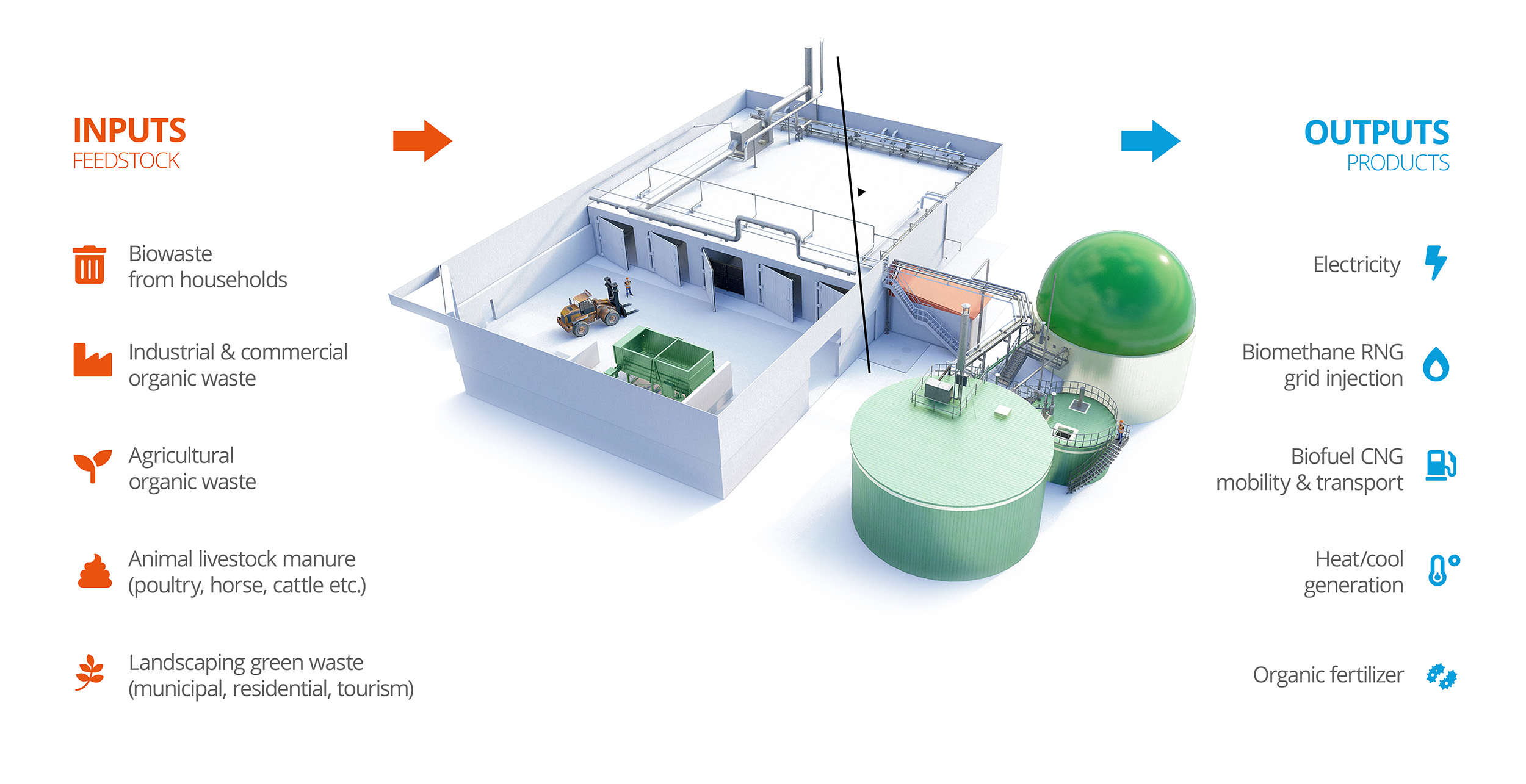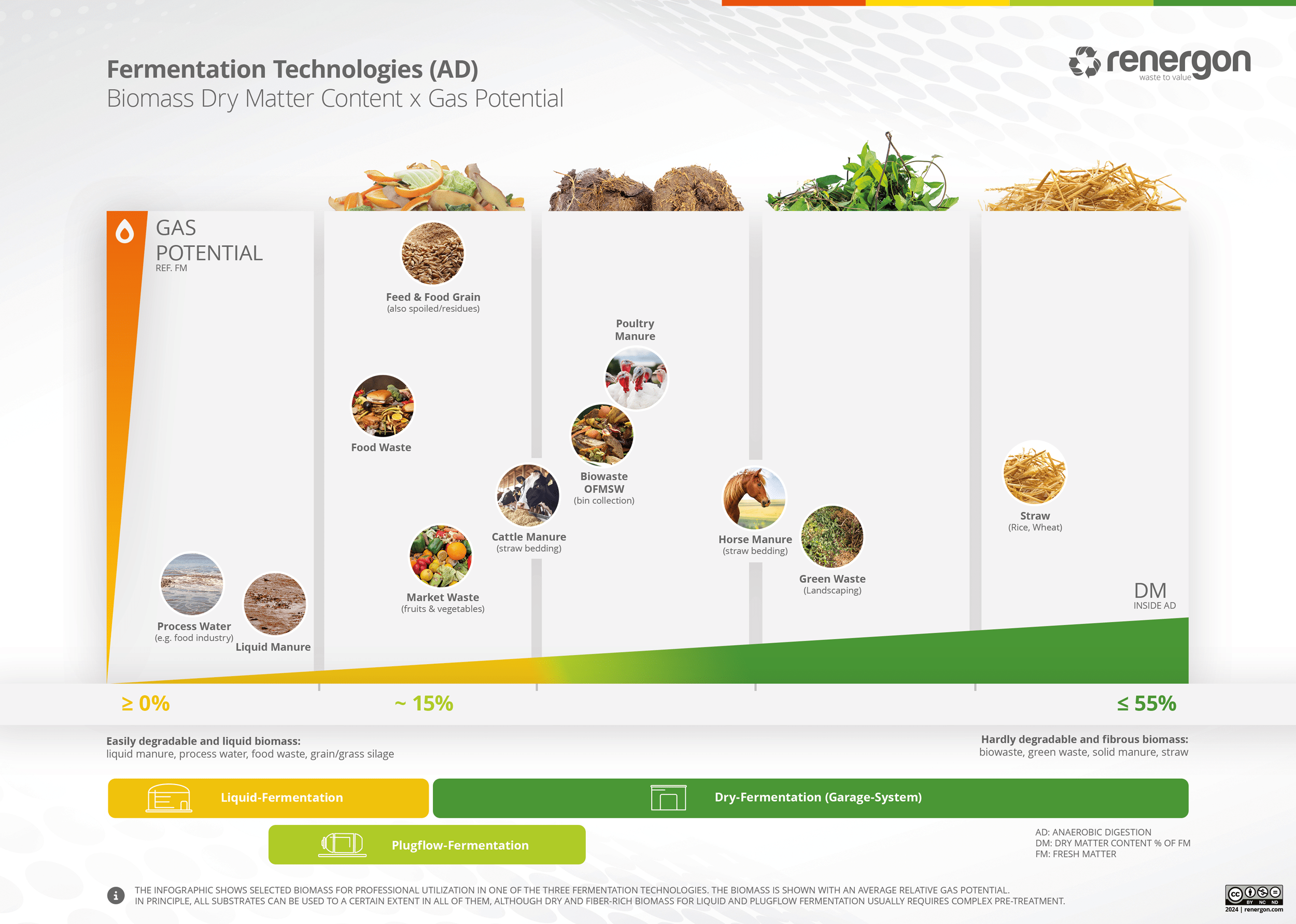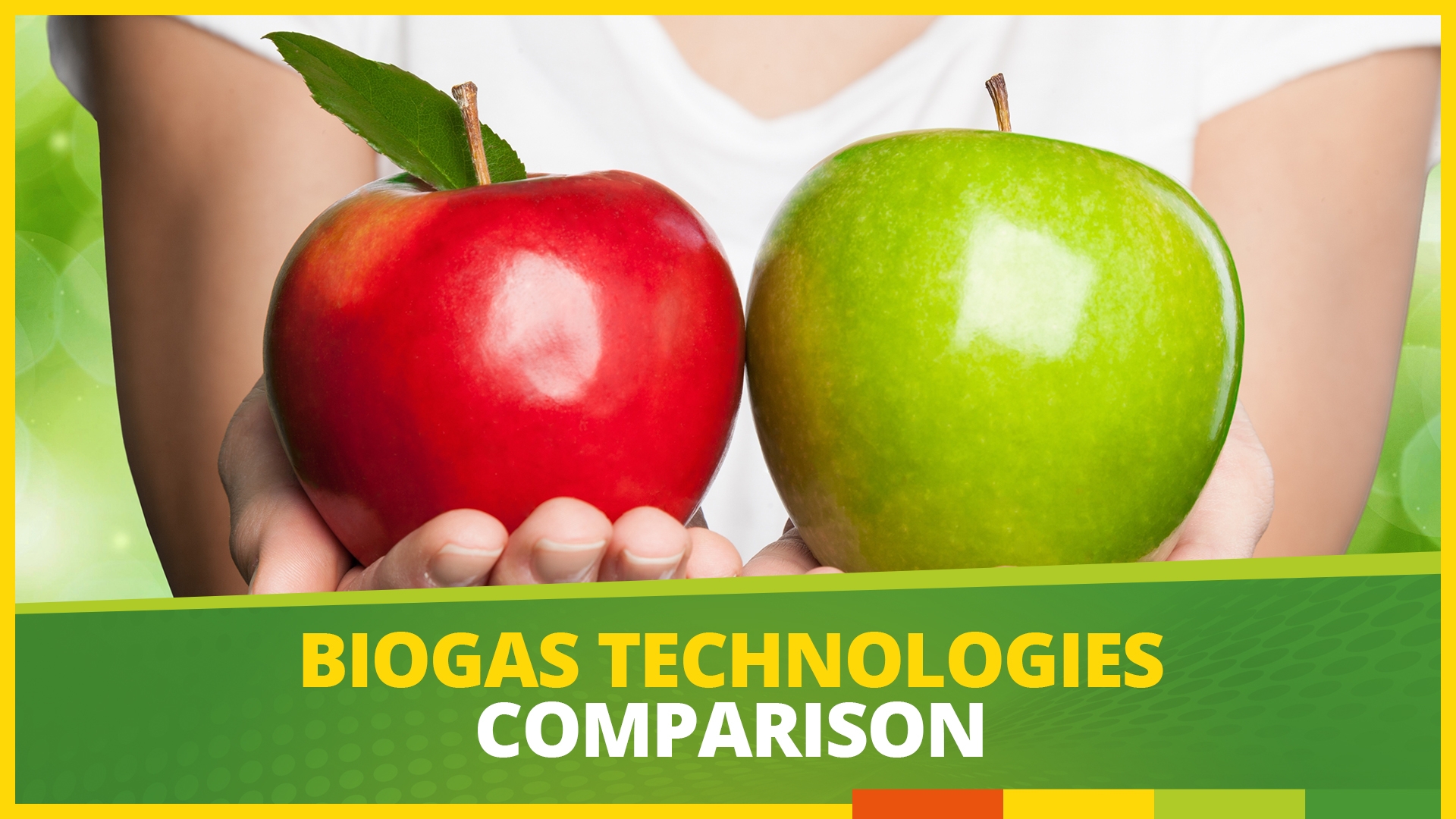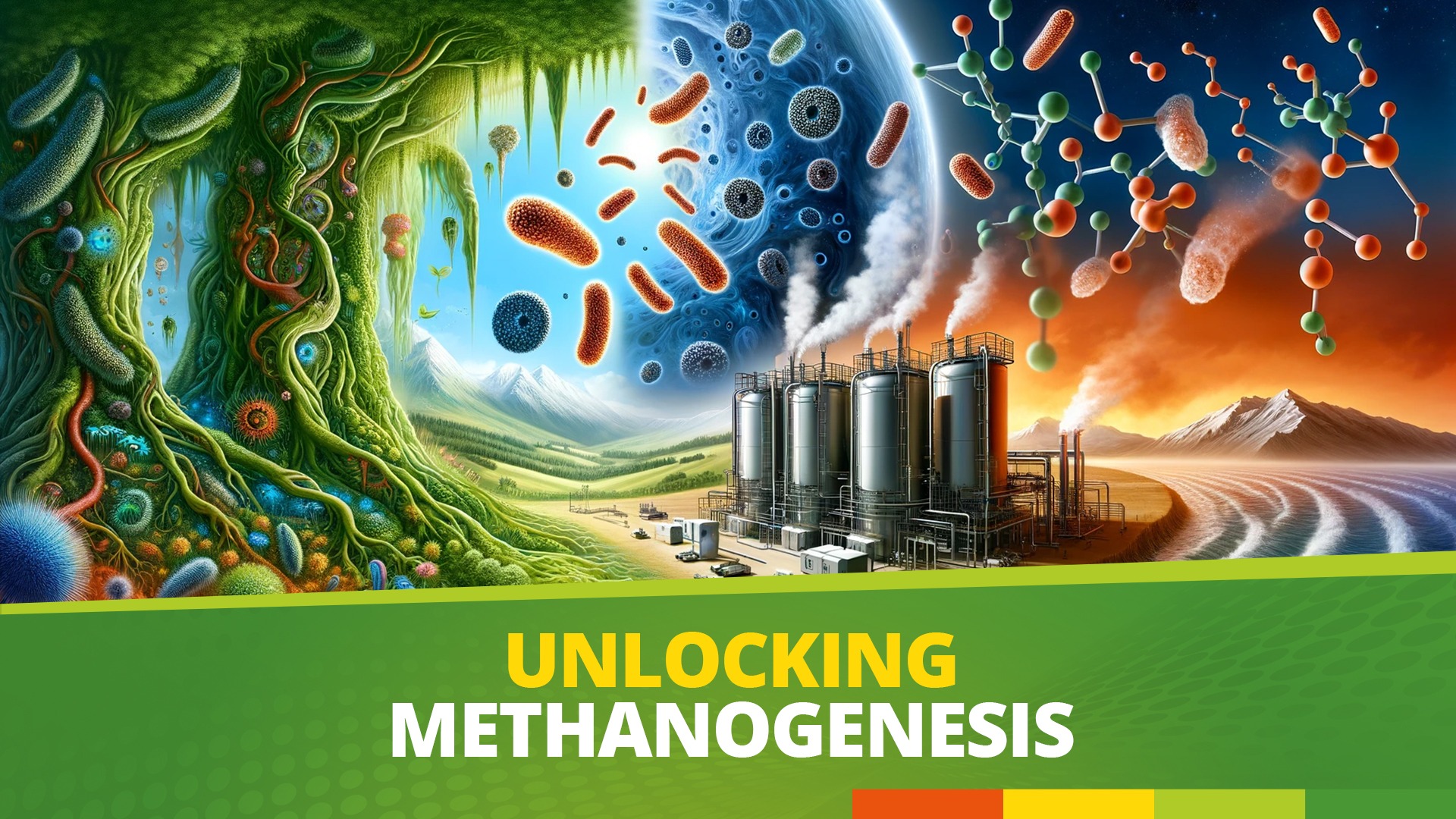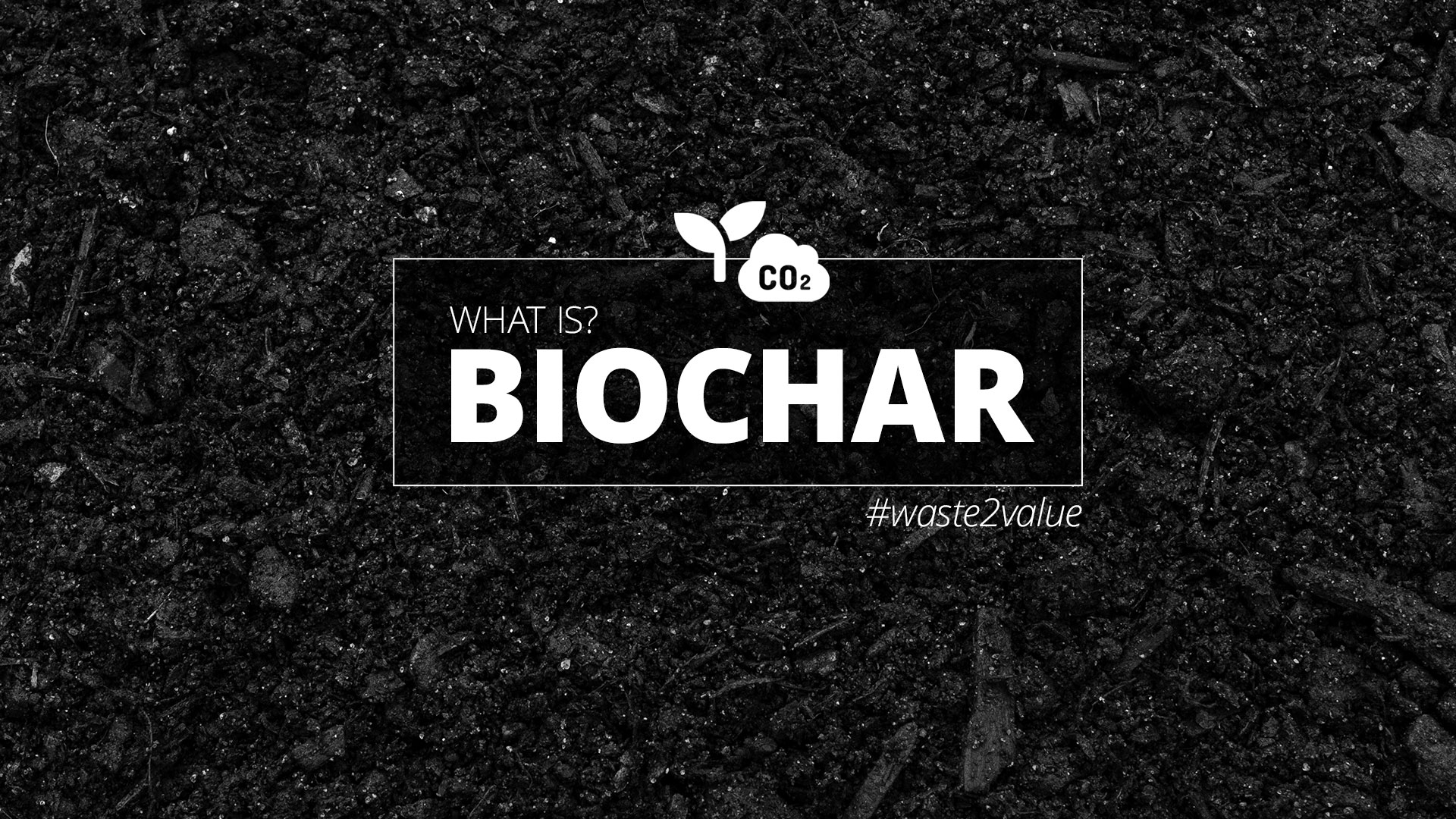ANAEROBIC DIGESTION & RESOURCE RECOVERY
Where traditional liquid biogas plants and plug flow designs end, our RSD® technology picks up. Dry fermentation uniquely empowers the processing of dry and fibrous materials (with a dry matter content of 20%-55%), which commonly challenge other systems.
By applying a batch mode process, Renergon ensures stable and reliable biogas yields. The plant consists of multiple fermenter boxes (garage digesters) that follow a defined fill-and-empty cycle. Manual work is kept to a minimum. Apart from straightforward loading and unloading with a wheel loader, no complex substrate pre-treatment is required. Even shredding is rarely necessary. Once inside the fermenter, the substrate remains completely still during the retention period of 18–21 days. This eliminates the need for stirrers or pumps and prevents floating or swelling layers, resulting in fewer technical failures, lower maintenance effort, and reduced operating costs.
A decisive advantage of solid-state anaerobic digestion is its wide substrate flexibility. Input materials may contain impurities that remain as harmless residues after digestion and have little dependence on particle size or fiber content. Household biowaste, often mixed with packaging, or horse manure containing horseshoes or holsters, can be processed safely—materials that would otherwise cause severe damage to sensitive stirring technology.
The produced biogas is versatile: it can be converted on site into electricity and heat in a combined heat and power unit (CHP), or upgraded into biomethane and fed into the natural gas grid. Alternatively, it can be used directly as a renewable vehicle fuel (CNG), contributing to sustainable mobility and energy independence.
APPROPRIATE WASTE TYPES
Globally, the potential of organic waste is often undervalued both economically and ecologically. RENERGON turns this extensive range of material into value, providing our clients with both economic and technical advantages. Relevant substrates include:
BIOWASTE
GREEN WASTE
MSW (household waste)
AGRICULTURE WASTE
ANIMAL HUSBANDRY WASTE
SLAUGHTER BY-PRODUCTS
INNOVATIVE BIOGAS TECHNOLOGY
The transformation of organic matter into biogas is a natural process. When industrial biogas technology is aligned with these biological principles, results are measurably more efficient and reliable. Systems that attempt to override natural processes often create unnecessary complexity, accelerate wear, and increase the risk of operational failures.
Renergon follows a different path. By applying the patented RSD® Solid Anaerobic Digestion process, we strengthen natural biological mechanisms with a few robust, high-performance components. This creates measurable synergies: stable and continuous biogas yields, reduced mechanical stress, lower internal energy consumption, and ultimately reduced life-cycle costs with higher plant availability and longer service life.
At the core is the RSD® percolation process. Here, the percolate – the process liquid – is continuously recirculated to initiate and maintain the anaerobic degradation of stackable biomass inside the fermenter boxes. This cyclic flow distributes microorganisms, heat, moisture, and nutrients homogeneously throughout the substrate. Stabilising substances in the percolate further secure process reliability.
The result is a robust biogas process with high tolerance against impurities and foreign materials, thanks to the stability of the Renergon dry fermentation technology. This ensures predictable performance, even under challenging substrate conditions, and confirms Renergon’s position as a technology leader in sustainable, solid-state biogas solutions.
FROM WASTE TO VALUE
Our attention is centered on our clients. Your choice promotes a lucrative investment through the creation of renewable energy, fuel, compost, fertilizer, and biochar, as well as through the revenues from waste disposal and procured CO2 offset certificates.
Biogas stands as a multifaceted energy vector, possessive of the capabilities for transportation and storage. Beyond the generation of electricity and heat via a Combined Heat and Power unit (CHP), it can also be refined into bio-methane (bio natural gas). Subsequently, it can be integrated into the natural gas grid, utilized as fuel (CNG) for vehicles such as cars, trucks, and buses, or canistered and marketed to industries/commercial entities or private residences.
NEWS & TOPICS
